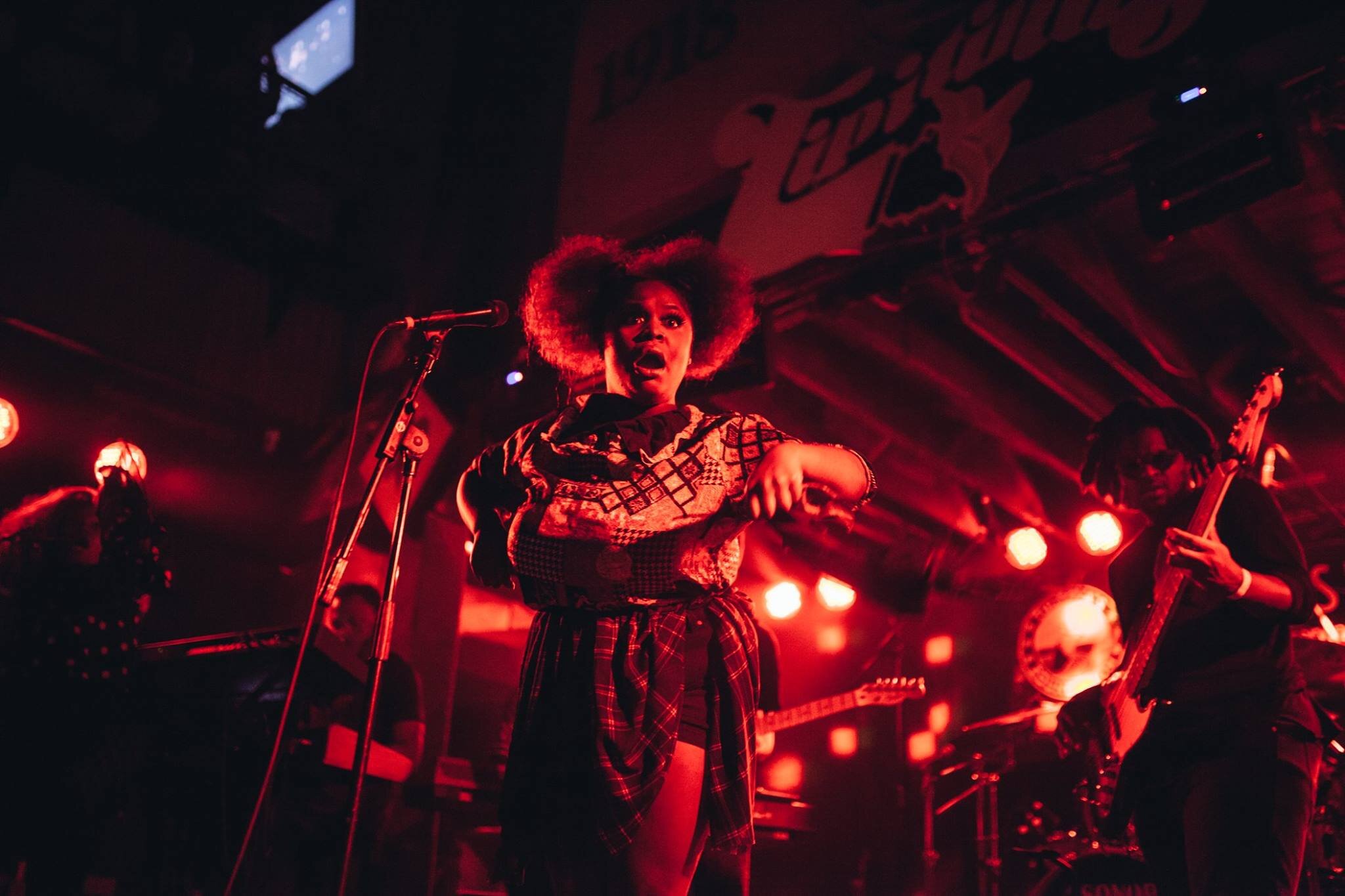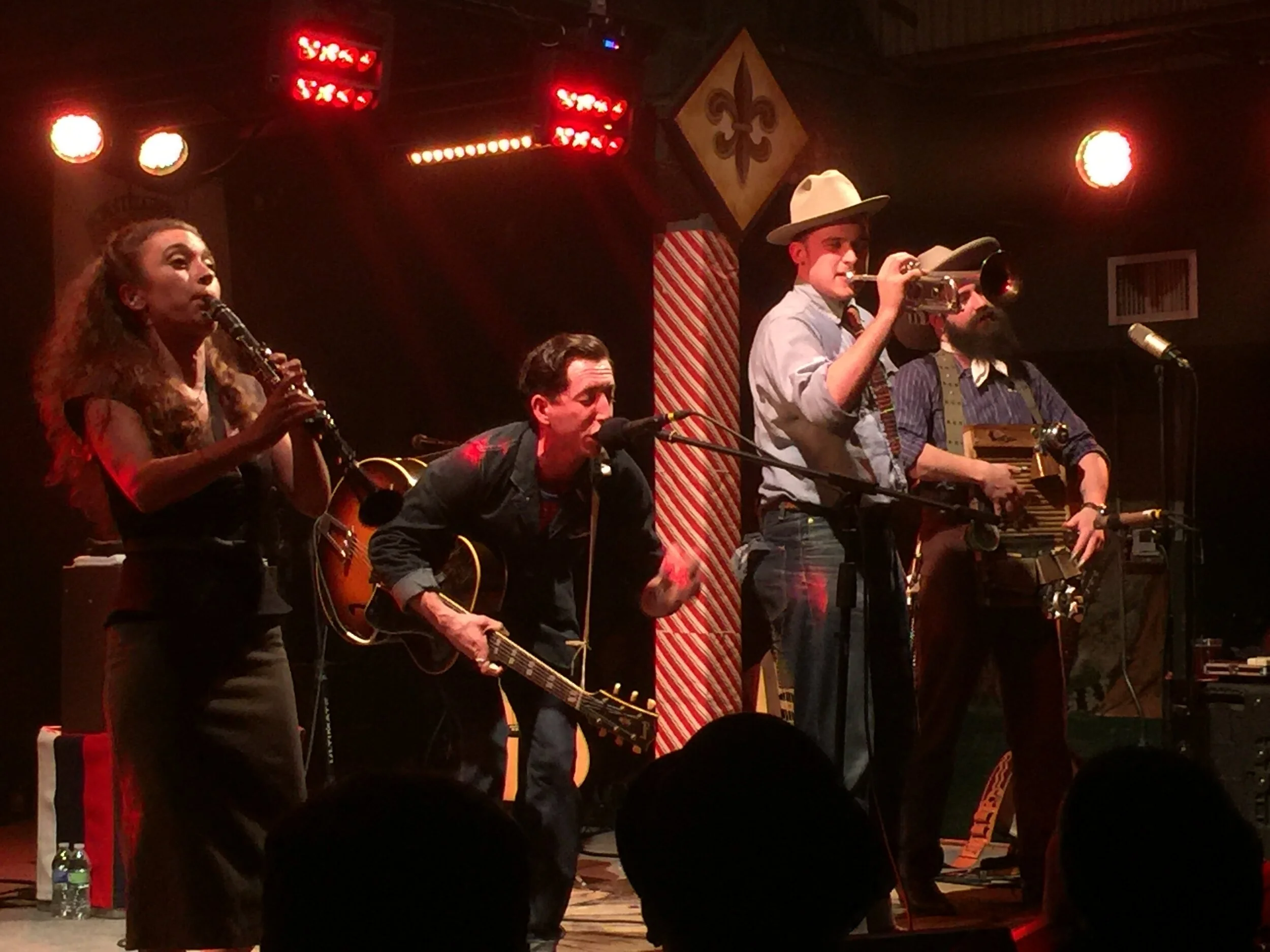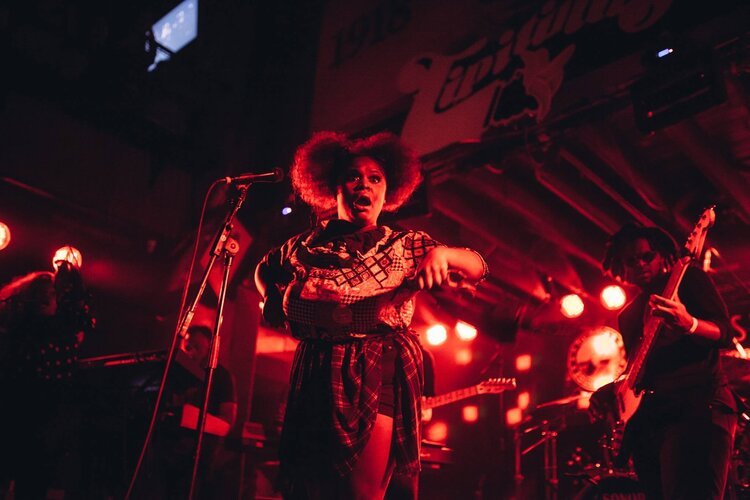Tipitinas.TV Hopes to be New Orleans' "Austin City Limits"

Tank and the Bangas at Tipitina’s, by Gus Bennett Jr.
The live-streamed series features Tank and the Bangas on Saturday night, and it will be back for Season Two.
As musicians and club owners, the members of Galactic have found two ways to not make money during a pandemic. They can’t perform, and as the owners of Tipitina’s, they can’t put on shows. They recently launched Tipitina’s TV not so much to staunch the flow of red ink as to help their employees and musicians.
“What can we do to keep money flowing or to keep jobs flowing?” bassist Robert Mercurio wondered. The band had other, more extravagant ideas than a live-streamed series as well, but the current crisis the venue finds itself in with no gigs to pay the bills and no change on the horizon has made everybody understandably risk-averse.
“It’s not going to keep the business going, but it’s keeping our cogs greased and it’s helping to pay our staff. It’s definitely putting money in musicians’ pockets, which is a very important thing to Tipitina’s.”
“Season One” presents six concerts that feature Galactic, Rebirth Brass Band, Anders Osborne and Samantha Fish. Tank and the Bangas will perform Saturday night at 8 p.m., and the series will end with The Radiators on September 19. The season has been sufficiently profitable to make it worthwhile to plan Season Two, but not so profitable that it meaningfully changes the club’s financial situation.
“If we had twice the amount of subscriptions, then we’d be in a position where it was really helping the club,” Mercurio says. “It’s helping the club, but doing one show a week with no alcohol sales—it’s pretty easy for someone to do the math.”
Tipitina’s, like live music venues around the world, has struggled to deal with the shutdown that followed the outbreak of COVID-19. Almost everything good about a concert runs afoul of health protocols to prevent the spread of the Coronavirus. Singing and shouting puts more potentially infected droplets in the air, so singers and excited fans increase the risk of spread as a natural part of the experience. Since part of the excitement of a concert is to be shoulder to shoulder with people who share your passions, the chances of spread go up.
For that reason, Zeke Emmanuel, a bioethicist and professor of healthcare management, said earlier this year, “Larger gatherings—conferences, concerts, sporting events—when people say they’re going to reschedule this conference or graduation event for October 2020, I have no idea how they think that’s a plausible possibility. I think those things will be the last to return.” Although the Las Vegas-based Electric Daisy Carnival has sold out three days in May 2021, Emmanuel’s prediction has so far largely proven true. Aside from a handful of controversial exceptions, concerts are on hold for the foreseeable future. Touring bands aren’t seriously scheduled to return until summer of 2021, and many of those tours will start in Europe, which has generally handled to Coronavirus outbreak better than the U.S.
Some experts think even those dates are optimistic. Lollapalooza co-founder Marc Geiger said that he didn’t think live music would really return until 2022.
“It’s going to take that long before, what I call, the germaphobic economy is slowly killed off and replaced by the claustrophobia economy,” he told industry analyst Bob Lefsetz. “That’s when people want to get out and go out to dinner and have their lives, go to festivals and shows.”
Until that happens, club owners are forced to be creative. Season One of Tipitinas.TV is one such effort, but it is also proof of a concept. Before the start of the pandemic, the production team at Tipitina’s had thought about an Austin City Limits-like show originating from Tipitina’s. The Austin-based show presents live performances by bands in a setting them suggests the show’s Texas hill country roots. “This could turn into something that continues post-COVID and makes sense—this weekly TV show that reaches people that don’t live in New Orleans and still want to be connected to Tipitina’s,” Mercurio says.
The club already has three cameras installed that it uses for the in-house video system and pre-COVID live-streams, but for Tipitinas.TV, they’ve added three cameras including ones on the floor that they couldn’t use with an audience in the club. “You feel like you’re in the second or third row of the club,” Mercurio says. “You’re really up close. II haven’t been up close in Tipitina’s in 20 years, but I watched some of these and thought, Oh yeah, I remember what that used to feel like, to be up front and riding the rail at Tip’s. It’s kinda cool.”
The streams require a crew of 10 people in addition to the band, which adds expenses at a time when the club really doesn’t need more. According to Mercurio, the crew is necessary, and not only to show audiences and potential backers what Tipitinas.TV series could look like.
“We really wanted to give more value to the customer,” he says.
The shows are digitally ticketed, and fans can pay $11.99 for individual shows or $49.99 for the season. Two-thirds of the ticket buyers bought the season pass, which sold well enough to keep the project in motion. Anecdotal evidence suggests that the people who pay to watch live-streams including ones on free platforms such as Facebook and Instagram do so to support the musicians, and Tipitina’s priced its season pass with that audience in mind.
“I think there have been people who were like, I don’t know if I’m going to watch any of them, but if it’s a way I can help …,” Mercurio says.






